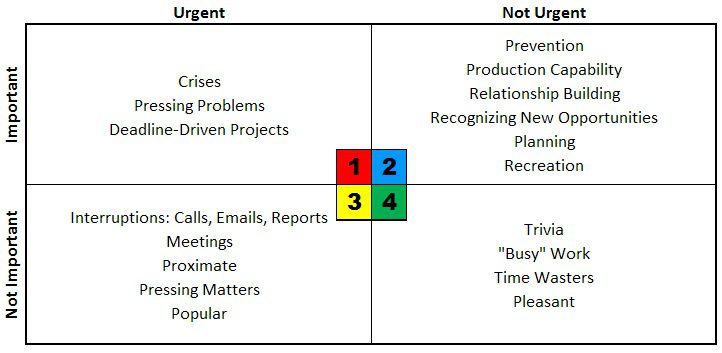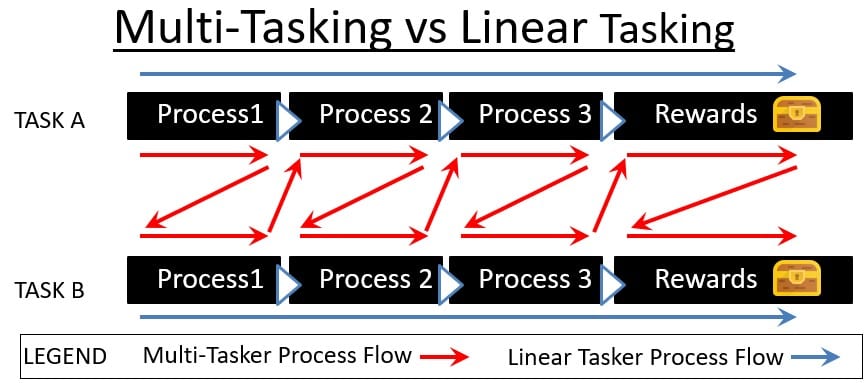Time management skill is acquired through constant practice of the understanding of your activities measured in terms of time on various aspect to get more done with less time, more efficiently and more effectively:
Decision Making With More Clarity
Mapping your day to day tasks to a Task Priority Matrix or a Rewards vs Effort Decision Matrix such as the ones below. And categorizing based on importance, urgency, rewards, and effort on paper or screen. You will “see” better when the idea is outside your brain, thus enable us to
- Quickly identify the important and urgent tasks that we should focus on
- Delegate the task to someone in a better position (Expert or Subordinate) to do it
- Avoid doing totally

Organizing & De-cluttering
In history, a small but well-organized army can easily defeat a large disorganized army. In modern days, a well organized individual can outwit and overcome the obstacles in his way.
- Categorize – Grouping similar items together
- Storing & Retrieving System – What you store incorrectly may lose its place in your pile, and thus taking more time to retrieve.
- Divide & Conquer -Breaking tasks into smaller, more manageable size especially when they are too big that you don’t know where to start.
- Always be prepared – In times of need or urgency, Having handy checklists to help you ensure you don’t miss a thing
Staying Focus & Prioritize
Productivity increase when you are focused on the task and undisturbed
- The Power Of One – A One Track Mind: “On Target Till Target”
- Reducing Distractions (Self Management): Distractions comes from within. It could be people, things or activities that you know you shouldn’t get into as they will most likely sidetrack you and waste your productive hours.
- Managing Interruptions (People Management): Interruptions are people looking for you asking for your attention. Let them disrupt you only when it is of importance.
- Motivating Yourself Along The Way
Why Need to Avoid Multi-Tasking
While the idea of accomplishing multiple things at the same time makes you look or sound capable.
In truth, you are wasting quite an amount of your resources (Energy, Effort, Time, Money, etc) as going back and forth needs some adjustment, and losing previously gained momentum.
Most importantly, if there’s any reward at the end of the tasks, it would also take you twice as long to reach it.

Self Discipline (Self Control)
While similar to focus. Self Discipline is more of a habit of consistent focused actions.
- The moral courage of doing the right thing at the right time without any external influence
- The assertion of willpower over other desires
- Leverage on routine conditioning and logic to power through when there is no source of motivation.
Constant Action, Never-ending Improvement
Evolved from the teaching of Anthony Robbins’ CANI (Constant And Never-ending Improvement)
Always have the mindset of “there is always room for improvement” but at the same time know that a large amount of effort is required to be the best in what you do. So striving for the absolute best may not be a good thing for you when you can use your time, effort, energy and other resources for other things or activities that can have a larger impact in your life.
While striving for personal best, it is also important to learn the skill of leveraging on other people’s best to synergize an even better outcome. A good metaphor for this would be that the best software company owner in the world, does not create the best software himself.
“The more you do, the more opportunity to learn, the better you can be.”
Managing Time, Reduce Stress and Increase Happiness
Related Time Productivity Posts
- Time Management Basics
- Previously on Time Management Techniques